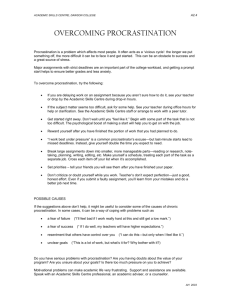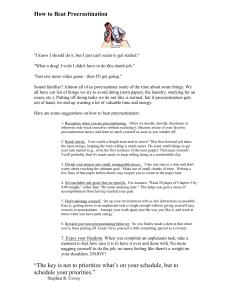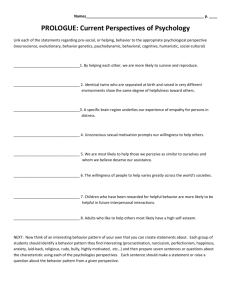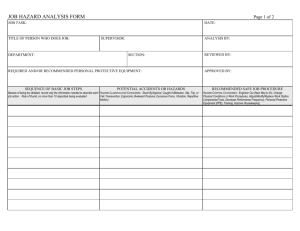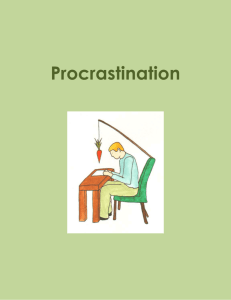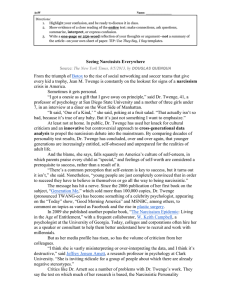Learning Assistance Association of New England October 29, 2010
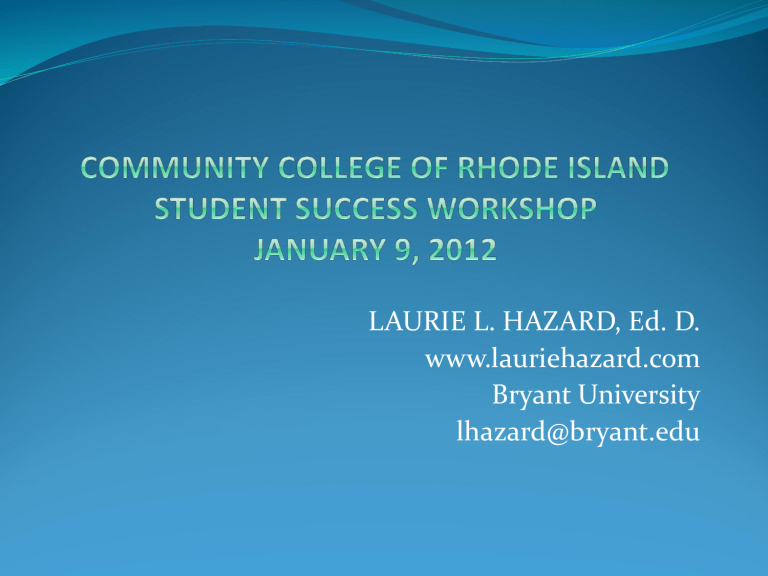
LAURIE L. HAZARD, Ed. D.
www.lauriehazard.com
Bryant University lhazard@bryant.edu
Ice Breakers
What is your most visited website?
What is the last item you purchased online?
What is your favorite band/musical artist?
What is your favorite TV network?
What is your favorite magazine?
Tru Youth Research
Situating Ourselves With Our Students
A Vision of Students Today
"A Vision of Students Today" from blip.tv
: Professor Michael Wesch asked students how they learn, what they need to learn, their goals, hopes, dreams, what their lives will be like, and what kinds of changes they will experience in their lifetime.
Beloit College Mindset List
Use your first class to “situate yourself with your students.”
Create an ice breaker or steal one from a website or colleague ( p. 2)
Avoid buying into myths: My colleagues will lose respect.
They’ll think I’m spending valuable class time on fun and games.
College Student Development
Seven Vectors
Developing Competence
Managing Emotions
Developing Autonomy
Establishing Identity
Freeing Interpersonal
Relationships
Developing Purpose
Developing Integrity
Chickering, A. (1972). Education and Identity. San
Francisco: Jossey-Bass .
Seven Tasks for First-Years
Making Friends
Getting Good Grades
Establishing Future Goals
Managing Time
Being on One’s Own
Without Family and Friends
Establishing an Identity
Maintaining Physical Self
*
Brower, A. (1990). Student perceptions of life-task demands as a mediator in the freshman year experience. Journal of the
Freshman Year Experience, 2(2), 7-30. 1-8/92
Generation Me
Jean M. Twenge, Ph.D.
Generation Me : Jean Twenge, Ph.D.
Those now from elementary school to thirty-some-things
The majority of CCRI students were born between 1978-1993
The results of twelve studies on generational differences based on data from 1.3 million
Americans
Focus on those born in 70’s, 80’s, 90’s
Generational Differences
Children Born Prior to 1970 Children Born Post 1970
Good Christians
Hard Workers
Obedient
Happy
Independent
Open Minded
Shift from obedience, good manners, loyalty and religion to the “Do Your Own Thing” parenting
Fall of social rules/rise of the individual
Recent Research
Howe, N. and Strauss, W., Millennials Go To College, 2 nd edition, Life
Course Associates, (2007)
A Portrait of Generation Next (2006) Pew Research Center
Twenge, J.M. (2006)., Generation Me: Why Today's Young Americans
Are More Confident, Assertive, Entitled--and More Miserable Than
Ever Before
The Rise of Narcissism
Negative trait defined as excessive self-importance
One of the few personality traits that psychologists agree is almost completely negative
Overly focused on self; lack empathy; feel entitled to privileges; feel superior to others; more likely to feel hostile, anxious, compromise health, and fight with family and friends
In the 50’s, 12% of teens agreed with statement, “I am an important person.” In the late 80’s, 80% did (almost seven times as many!)
Curricula designed to raise self-esteem likely raised narcissism
Ex) Self-Science: The Subject Is Me (instead of biology)
Fosters entitlement: in workplace, young people expect too much too soon: high salaries and promotions; in school, where’s my A?
Rise of Narcissism
From: Further Evidence of An Increase In Narcissism Among College Students, Twenge, Konrath, Foster, et al.
General Research
Self-regulatory behavior is at the heart of being successful in college.
The same study habits that contributed to success in high school are unrelated to college performance.
High school grades and SAT scores together usually account for 25% of the variance in grade point average.
Time management components are significant predictors of cumulative grade point average and account for more variance than SAT scores.
Personality traits affect individuals’ pursuit of achievement and whether they’ll utilize success strategies that have been taught to them
Personality Variables Related to Academic
Achievement
Conceptions of Intelligence Locus of Control
Generalized expectancy
Incremental vs. Entity View
Internal vs. External
(Dweck and Leggett, 1988)
Internal: Self, Hard work,
Effort
Growth vs. Fixed Mindset
External: Luck, fate, chance, powerful others
(Dweck, 2006)
Another Personality Trait Change: LOC
Twenge, Zhang, and Im (2004). It’s Beyond My Control: A Cross Temporal Meta Analysis of Increasing Externality in LOC, 1960-2004
From 1960 to 2002 , college students increasingly believed that their lives were controlled by outside forces as opposed to their own efforts
The average college student in 2002 had a more external loc than 80% of college students in the 60’s
As individualism has increased, so too has externality
Lefcourt (1991) describes externality as a “failure to act in one’s own behalf in trying to remedy unpleasant situations, in the face of potential stress, or in trying to bring about rewarding outcomes
Internal locus of control has been found to be the strongest predictor of achievement with minority students than any other variable
(Coleman et al., 1966)
Externality encourages a victim mentality that attributes negative experiences to outside sources, which, in turn, undermines personal responsibility.
Student Transitions
Traditional aged students are transitioning from adolescents to young adulthood
From high school to college
From one institution of higher education to another
(transfers)
From unemployment to back to school
From one field to another (job retraining)
From one semester to the next
From graduation to work
Psychology of Adjustment
Definition of Psychology
New students must adjust their mental processes
(mindset) and behaviors (strategies) to be successful in college in four areas:
Academic
Social
Emotional
Intellectual
Academic Adjustment
Student Reflection:
I quickly learned that the rigorous academic program would require more time and effort than my other school. Not to mention a complete overhaul of my studying techniques. The first thing that hit me was that I was no longer able to get the most potential of studying when
I try to study in my room. I would need to go to the Library or any quiet study lounge.
Study Space Activity:
Choose a study space on campus that meets the criteria outlined in this chapter. Use this new space for at least an hour to do some course work. Were you more efficient in this new study environment?
Why/why not? What have you learned about selecting a study space?
Intellectual Adjustment
Before coming to college, diversity was a rarely talked about subject in any school I had ever attended. To be honest I was ashamed of this. It was as if diversity was an ugly subject that no one wanted to talk about. It was a refreshing surprise when the first day I walked onto campus here that there was a banner in the Student Union that said something to do with diversity. Until I attended college I was not aware of all that diversity truly meant and what further helped was the class exercise we did on diversity and discrimination. When I had to sit down and examine if I had been discriminated against in my life, and
I realized that I had, it made me understand diversity even more and it made the issue hit home even more.
Social Adjustment
Some of my successes this semester were that I was able to make great friends and fit into a group where I feel absolutely comfortable. Having that support system in place, whether it is to have fun or to bounce thoughts off of is a key component to make it through whatever choices one makes in life.
Emotional Adjustment
The beginning of the school year was stressful. I had to perform well in all of my roles, and there were a lot of people expecting a lot from me. First, I have my family who is expecting me to graduate with honors. They have high expectations because I am the oldest of five siblings and my parents want me to be the best example for my siblings to follow. Then, there are two people who have generously offered to pay for some of my education. They have high expectations of me because they want to see me succeed in the future. I have a boss who relies on me for a lot of his daily tasks. And then, I have my husband who is usually waiting for me to go home and have dinner ready for him.
Feeling Like A Fraud
Imposter Syndrome
“I still believe,” confessed Mike Myers, “that at any time the No-Talent Police will come and arrest me.” Myers is not alone.
The question is, why do so many clearly smart, capable, successful people feel like intellectual frauds who are merely impersonating a competent person?
Dr. Peggy McIntosh, Wellesley College
Director of the Wellesley Centers for Women
Self-Concept
The thoughts, feeling, attitudes and behaviors that encompass who we are.
Roger’s called this the “phenomenal field.”
Changes over the lifespan
Openness to Experience/Remove Obstacles Toward growth
I am FILL IN THE BLANK
Academic self-concept
The Phenomenal Field Changes
Throughout A Semester
Student Information Sheet: Beginning of the semester pp. 3-6
Intentional Interventions: Week Three, Post Mid-
Terms pp. 7-9
Success Counseling: Office Hours p. 10
A Student’s Phenomenal Field
As I’m sure you are slightly curious, what made me come to this revelation was while I was trying to apply myself, I realized I just can’t study properly on my own; I’m just not cut out for this. I have always known that, so it isn’t a big shock. Honestly, I don’t think I am, and never thought I was, going to make it through all four years of college anyway, it’s not for me. I need to just shut up and do this class, no matter how pointless I may think it is; what’s it matter anyhow, even if I learn one thing all year it wouldn’t be a total waste of time. Learning is learning, whether I know I’m doing it or not.
A Student’s Phenomenal Field
Prof. Hazard showed little sympathy last year in my parents divorce, my depression and sickness (swine flu that lead to pneumonia). Even though I had an exam grade average of a B- she took away the entire 20% participation without letting me know that I was at risk of losing such a large chunk of my grade. When I would let her know why I was missing she would only send feel better emails, not please come see me, etc. I thought I was being excused.
What to focus on?
Reading Strategies and Self-Regulatory Behaviors
The Environment
Reading In The Age of Technology
The Internet Is An Interruption
System
Hypertext and different media comes at us simultaneously
Research shows we read faster and less thoroughly as soon as we go on-line
Email applications check for new messages every five to ten minutes
Office workers check mail 30 to 4o times per hour
Each glance breaks concentration and burdens working memory: the cognitive penalty severe
Switching costs: every time we shift our attention, the brain must reorient itself, which further taxes our mental resources
Technology Dry Out Activity, p. p. 11-13
Farewell Facebook
Reading Is Reading: Either You Can
Do It or Not
The ability to transfer written symbols into sounds, decoding, is a skill that can be taught and mastered
Rigfap churbit askane
More to reading than making sounds
Reading comprehension, the ability to extract meaning from text is not transferable
Tacit Knowledge Exam
Domain Specific Knowledge
Baquacil
Winch
Tenure
Sphygmomanometer
Debenture
Histrionic
Malapropism
Resources
50 Ways to Leave Your Lectern (2003)
Constance C. Staley
Foundations for Learning: Claiming Your
Education (3rd Edition) (2012)
Laurie L. Hazard and Jean-Paul Nadeau
What the Best College Teachers Do (2004)
Ken Bain
Vocabulary Building Strategies
Index Card System (pp. 14-15)
Word Journals
Anything else?
Intertextuality
Instructional Approach
Instructors offer multiple texts and materials of wide genres to give students the opportunity to:
Increase background knowledge
Make connections across and among texts
Develop multiple perspectives, interpretations, and broader pictures of topic, and develop critical thinking skills (Lenski, 1998)
Pedagogical Tool (p. 16)
Research on Self-Regulation
Procrastination is a self-regulatory failure that is not entirely understood (Steel, 2007).
Some assert that procrastination is not a problem of time management (Marano, 2007), yet twenty percent of people identify themselves as chronic procrastinators (Marano, 2007)
Self-regulatory behavior is at the heart of being successful in college (White & Kitchen, 1991).
The same study habits that contributed to success in high school are unrelated to college performance (Matt, Perchersky, and
Cervantes, 1991)
Time management practices and the ability to combat procrastination are more predictive of first-year college achievement than SAT scores and high school grades combined
(Hazard, 1997).
Laurie L. Hazard
Typical Tools for Time Management
Instruction
Prioritize
Make To-Do Lists
Engage in Goal Setting
Create Daily, Weekly, Semester
Planners
Roadblocks to Effective Time Management
Pedagogy and Practices
The concept of time management is a misnomer
Time on task is rarely addressed
Motivation and self-efficacy are not typically assessed
Procrastination behaviors and attitudes are not identified
Psychodynamics of procrastination are not discussed
Engagement is not measured
Accountability is not created
Laurie L. Hazard
Combating Procrastination and Goal Setting
Worksheets (pp. 17-21)
Questions?
Thank you
Laurie L. Hazard www.lauriehazard.com
lhazard@bryant.edu
or laurie@lauriehazard.com
Thank you for your participation!
